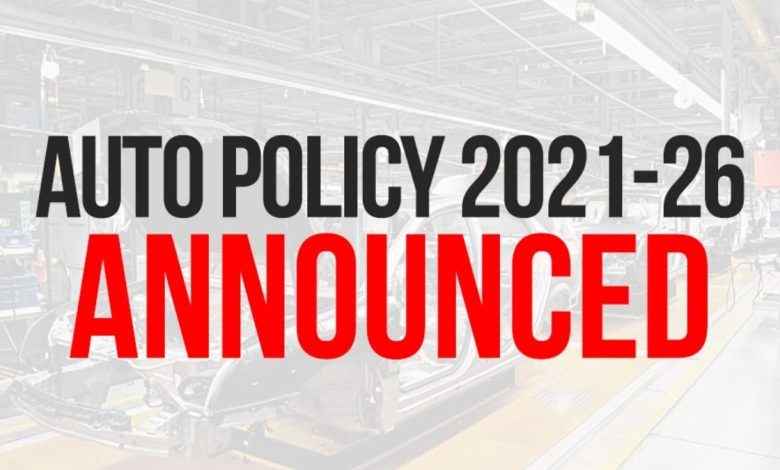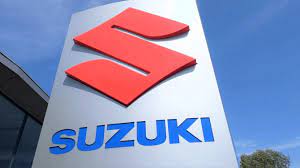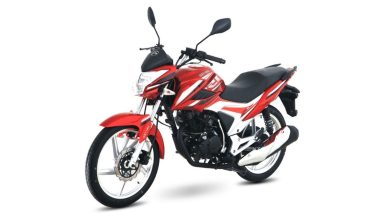
Finally here is the new Auto Policy 2021-26 Pakistan after expiring Auto Policy 2016-21. The government of Pakistan established a number of tax concessions for carmakers earlier this year in order to support and ensure the industry’s growth. For additional viability and sustainability, the AIDEP 2021-26 focuses on allowing the local auto sector to convert to 100% local production.
Also Read
The policy was submitted to the federal cabinet earlier today, which adopted the recommendations made in the AIDEP 2021-2026, which would ensure the continued development of the Pakistani automobile sector. The following are the key aspects of the policy, as stated in an official document:
- Minimizing the negative impact of car industry imports on the current account balance
- Localization
- Export targeting
- Consumer protection
- Promotion of new technologies
Table of Contents
No Short Term Effects
After the previous car policy expired on June 30, 2021, no new entrants were offered the advantages, save for a select few who were allowed relief to launch the following products:
- Small cars up to 1000cc
- New model tractors
- Motorcycles with engine capacity over 125cc (for the export market only)
According to the Ministry of Industries and Production’s research, owing to a time lag in investment, new goods are unlikely to see a rise in imports in the coming year. This means that the policy will have no short-term consequences on the current account balance.
Localization Strategy
The AIDEP 2021-26 places a strong focus on auto-parts localization, with ambitions to build on this in the near future. The current pace of localization, according to the paper, is as follows:
| Sector | Localization Level Achieved | Top 10 Localized Parts [SRO 693(I)/2006] | |
| Number of Parts | Value of Parts | ||
| Motorcycles | 95% | 85% | Crank Case, Crank Shaft, Piston & Ring, Magneto, Suspension, Transmission, Engine Head, Engine Block, Wiring Harness, Body Parts. etc. |
| Tractors | 92% | 80% | Transmission, Crankshaft, Piston, Connecting rod, Engine Valves, Engine Block, Starter Motor, Body parts. etc. |
| Cars | 55% | 45% | Suspension, Steering Knuckle, Brakes, Light Springs Leaf, Radiator, Steering mechanism, Windscreen, Body parts, etc. |
| Truck & Buses | 15% | 12% | Exhaust/Inlet Manifold, Front Cabin, Wiring Sets, Radiator, Heavy Spring Leaf, Silencer, Cross Members, Floor Assembly, Body parts. etc. |
It was also highlighted that Pakistan will be able to save a massive amount of foreign exchange in Completely Knocked-Down (CKD) production:
| Serial No. | Description | Value in USD |
| 1 | Cost of Completely Built unit (1500 cc ) | 22,000 |
| 2 | Cost of Imported CKD | 8,000 |
| 3 | Cost of local parts = USD 9000Less 30 % value addition/local content = USD 6000 approx | 6,000 |
| 4 | Difference between CBU & CKD =22000-14000(CBU import 36 % higher than CKD manufacturing ) | 8,000 |
| 5 | The average cost of CBU=14000 x 300,000 (if total requirement is imported) | 4.2 billion |
| 6 | FE saving if manufactured locally = 36% of 4.2 billion | 1.5 billion |
Initiative to Make in Pakistan
In order to indigenize vehicle manufacture, the AIDEP 2021-26 also includes the “Make in Pakistan Initiative,” which includes the following:
- Components or sub-assemblies shall not be eligible for concessions in case the local value addition is less than 30%.
- Manufacturing of parts to be localized through a bi-annual update of lists (SRO-693), resulting in enhanced tariffs, if imported.
- The first update of the AMAX list will include 22 further parts (first update after 2006).
- Next six months’ target set for manufacturers for localization of parts.
- The policy aims to localize 100% of motorcycle parts and 75% of car parts by 2026.
A New Policy Model
- For Agricultural Tractors of new make or new model as certified by EDB, the Customs Duty (CD) on localized parts will be 15% (20 % advantage) for three years from the date of manufacturing certificate or up to 30th June, 2026, whichever is earlier.
- For motorcycles exceeding 125 cc, motorcycle rickshaws, and auto-rickshaws exceeding 200cc as certified by EDB, the CD on localized parts will be 30% (reduced by 16%) for three years from the date of issuance of the manufacturing certificate or up to June 30, 2026, whichever is earlier, whereas non-localized parts attract CD at 15%.
- The cut-off date for issuance of the manufacturing certificate is 30th June 2023
Protection of the consumer
Consumer protection has been a contentious subject among Pakistani automobile buyers for a long time. The AIDEP 2021-26 addresses this issue by including the following clauses:
- Own Money Issue
Carmakers who postpone delivery for more than 60 days will face stiff penalties from the government. The penalty will be equal to 3% of the vehicle’s purchase price plus KIBOR. The provision was introduced to close the demand-supply imbalance and eliminate the issue of “own money.”
If the vehicle is sold before the original purchaser registers it, the government will charge an additional tax of Rs. 50,000 to Rs. 200,000 at the time of registration.
- Auto Sector Monitoring Committee (ASMC)
The government will guarantee that a committee is formed, with the MoIP secretary as its chairperson. The Engineering Development Board (EDB), the Ministry of Commerce, the Federal Board of Revenue (FBR), the Competition Commission of Pakistan (CCP).
The Ministry of Science and Technology (MoST), the State Bank of Pakistan (SBP), the Pakistan Automotive Manufacturers Association (PAMA), and the Pakistan Association of Automotive Parts and Accessories Manufacturers will all be represented on the committee (PAAPAM).
The following will be the responsibilities of the committee:
- Addressing consumer grievances including ‘Own Money’ and delayed deliveries.
- Safeguarding customers on quality issues.
- Implementation of WP-29 safety regulations.
- Minimum initial payment not to exceed 20% of the price.
- In case of non-compliance with policy interventions, the committee will have the right to stop the incentives.
- Other Clauses
- Online booking system to be introduced by all OEMs for cars, LCVs & HCVs to ensure traceability.
- Upfront payment restricted to 20% for cars, LCVs, SUVs i.e. OEMs will entertain booking requests on payment of 20% of the total invoice amount, at the time of booking.
New Export Targets
The administration has set a deadline for achieving the export objectives. These export objectives are indicative and will be evaluated and improved on a regular basis in accordance with the timetable below:
| Financial Year | Obligatory export as % of import value |
| 2021-22 | 0% |
| 2022-23 | 2% |
| 2023-24 | 4% |
| 2024-25 | 7% |
| 2025-26 | 10% |
The government will also oversee the formation of the Auto Industry Development and Export Committee (AIDEC), which will deal with technical issues in the auto industry and be chaired by CEO EDB, with the board serving as the committee’s secretariat.
Policy for Electric and Hybrid Vehicles
In terms of technical innovation, the automobile sector is developing at a breakneck speed. With this in mind, the government has chosen to insert a provision about powertrain technology upgrades, which includes:
Incentive For EVs
- Parts specific for EVs to be imported at 1% Customs Duty.
- No Sales tax on EV-specific parts at import stage.
- 1% Sales Tax on sale of locally manufactured EVs.
- Zero taxes and duties for capital machinery imports and charging infrastructure.
- Electric buses and trucks can be imported at 1% Customs Duty.
Incentives for Hybrids
- Parts specific for plug-in hybrids to be imported at 3% Custom Duty
- Parts specific to normal hybrids to attract 4 % Custom Duty
Approvals Already Given in Finance Act 2021
- New product policy for up to 850cc cars (incentivized tariffs).
- New Product Policy for motorcycles & tractors (incentivized tariffs).
- Promotion/continuity of EV Policy.
- Promotion of new technologies for e.g. hybrids.
- Adoption of safety regulations.
- Ensuring local value addition & bi-annual updates of localized parts.
- Consumer Protection (Kibor+3% on delivery beyond 60 days).
- Bringing the prices of locally manufactured cars above 1000cc down by reducing of Federal Excise Duty by 2.5 percent on each category of cars, SUVs, and LCVs:
- 7.5% to 5% for vehicles up to 2001cc and above
- 5% to 2.5% for vehicles between 1001cc and 2000cc
- 2.5% to 0% for vehicles up to 1000cc
Approvals Pending from Cabinet
- Notification/SRO to allow the import of CBUs 10 per variant maximum 100 units for cars 200 units for 2-3 Wheelers at 50% of levied Customs Duty (CD) for manufacturers for marketing and showcase purposes.
- Notification/SRO for duty-free import of plant and machinery for setting up plants for EV manufacturing.
Approvals Required: Money Bill
Amendment through Money Bill requested for:
- Incentives for local manufacturing of small and fuel-efficient vehicles (car/van/LCV) at affordable prices.
- Applicable to all present and upcoming vehicles up to 850cc.
- Enhancement of cut-off date & timelines for New Product Policy for Cars motorcycles & tractors
- New Product Policy CD (15-30%), two (three) years from manufacturing certificate or 30 June 2024 (2026), whichever is earlier – cut-off date of approval: 30th June 2022 (2023).
- Sales Tax concession to be extended to pickup trucks and LCVs of up to 1000cc.
- Extension of 5% CD for HCVs in current finance bill to new entrants also (Procedural issue/SRO/ to be added in relevant table).
Promote Cheap Cars
Following an increase in demand for crossover SUVs, the government has decided to place a greater focus on the marketing of small-engine budget automobiles. The government has introduced the ‘Meri Garri Scheme,’ which provides the following incentives to vans and light commercial vehicles (LCVs) up to 1000cc:
- All taxes removed (ACD(0%), AST(0%),WHT(0%) & FED(0%), ST reduced to 12.5%) on locally manufactured cars
- Reduction in taxes on CBUs (ACD 0%)
- New Product Policy CD (15-30%) +ST @12.5
These advantages apply to all current carmakers’ new models as well as new entrants. All automakers will be eligible for these incentives for a maximum of three years; however, those that get the production certificate later will still be eligible for the incentives until June 30, 2026.
What you think about the new Auto Policy 2021-26 let us know in the comments below!










Government announced 1 % Sales tax on Local Assembled Electric Vehicles, but not Confirmed 1 % Sales tax on Electric Two Wheelers, still 17 % Sales tax applicable on import of CKD parts for assembly of ElectricTwo wheelers, some one from EDB or FBR must clear this anomaly, regards
Muhammad Sabir Shaikh Chairman Association of Pakistan Motorcycle Assemblers APMA